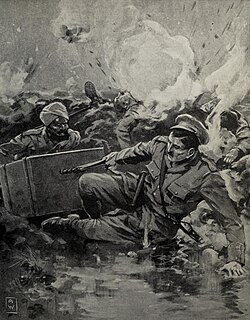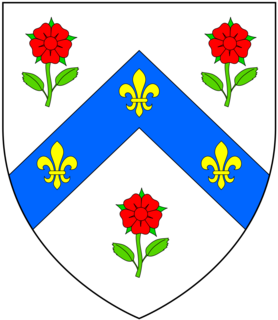
There have been six baronetcies created for persons with the surname Smyth, two in the Baronetage of England, one in the Baronetage of Great Britain, one in the Baronetage of Ireland and two in the Baronetage of the United Kingdom. One creation is extant as of 2010.
There have been two baronetcies created for persons with the surname Acton, both in the Baronetage of England. One creation is extant.
There have been nine baronetcies created for persons with the surname Anderson, four in the Baronetage of England, one in the Baronetage of Great Britain and four in the Baronetage of the United Kingdom. All creations are extinct.
Sir William Lowther, 1st Baronet was an English landowner from Swillington, West Yorkshire, and a baronet in the Baronetage of Great Britain.
Sir Thomas Allen, 1st Baronet also spelt Aleyn or Alleyn, was an English politician and grocer.
Sir Robert Clarke, 2nd Baronet was a British politician who sat in the House of Commons from 1717 to 1722.

There have been three baronetcies created for members of the Vernon family.
There have been three baronetcies created for persons with the surname Cooke, two in the Baronetage of England and one in the Baronetage of Ireland. One creation is extant as of 2013.
There have been two baronetcies created for people named Cole, one in the Baronetage of England and one in the Baronetage of Ireland.
The Baronetcy of Dalston of Dalston was created in the Baronetage of England on 15 February 1641 for William Dalston of Dalston Hall, near Carlisle, Cumbria.
Sir Henry Bellingham, 1st Baronet was an English lawyer and politician who sat in the House of Commons from 1625 to 1626. He supported the Royalist cause in the English Civil War.

There have been four baronetcies created for persons with the surname Cope.

The Elwes Baronetcy of Stoke-by-Clare in the County of Suffolk, was a title in the Baronetage of England held by the Elwys family, whose name through the years has alternately been spelled Helwish, Helewise, Helwys, Elwaiss and Elwaies.
Sir George Downing, 2nd Baronet was a British civil servant. He was the son and heir of Sir George Downing, 1st Baronet, for whom Downing Street is named.
Sir William Wray, 1st Baronet, of Ashby and 4th Baronet of Glentworth was an English politician who sat in the House of Commons at various times between 1645 and 1660.
Sir Thomas Whitmore, 1st Baronet was an English politician who sat in the House of Commons of England between 1640 and 1644. He supported the Royalist side in the English Civil War.
Sir John Mill, 1st Baronet was an English politician who sat in the House of Commons at various times between 1624 and 1640.

Sir John Monson, 2nd Baronet was an English landowner and politician who sat in the House of Commons in 1625 and 1626.
Sir Nathaniel Napier, 3rd Baronet, of Moor Crichel, Dorset, was an English landowner and politician who sat in the English House of Commons from 1695 to 1708 and in the British House of Commons from 1710 to 1722.

Sir Hervey Elwes, 2nd Baronet, of Stoke-by-Clare, Suffolk, was a British landowner and politician who sat in the English and British House of Commons between.1706 and 1722. He had the reputation of being an extreme miser.






